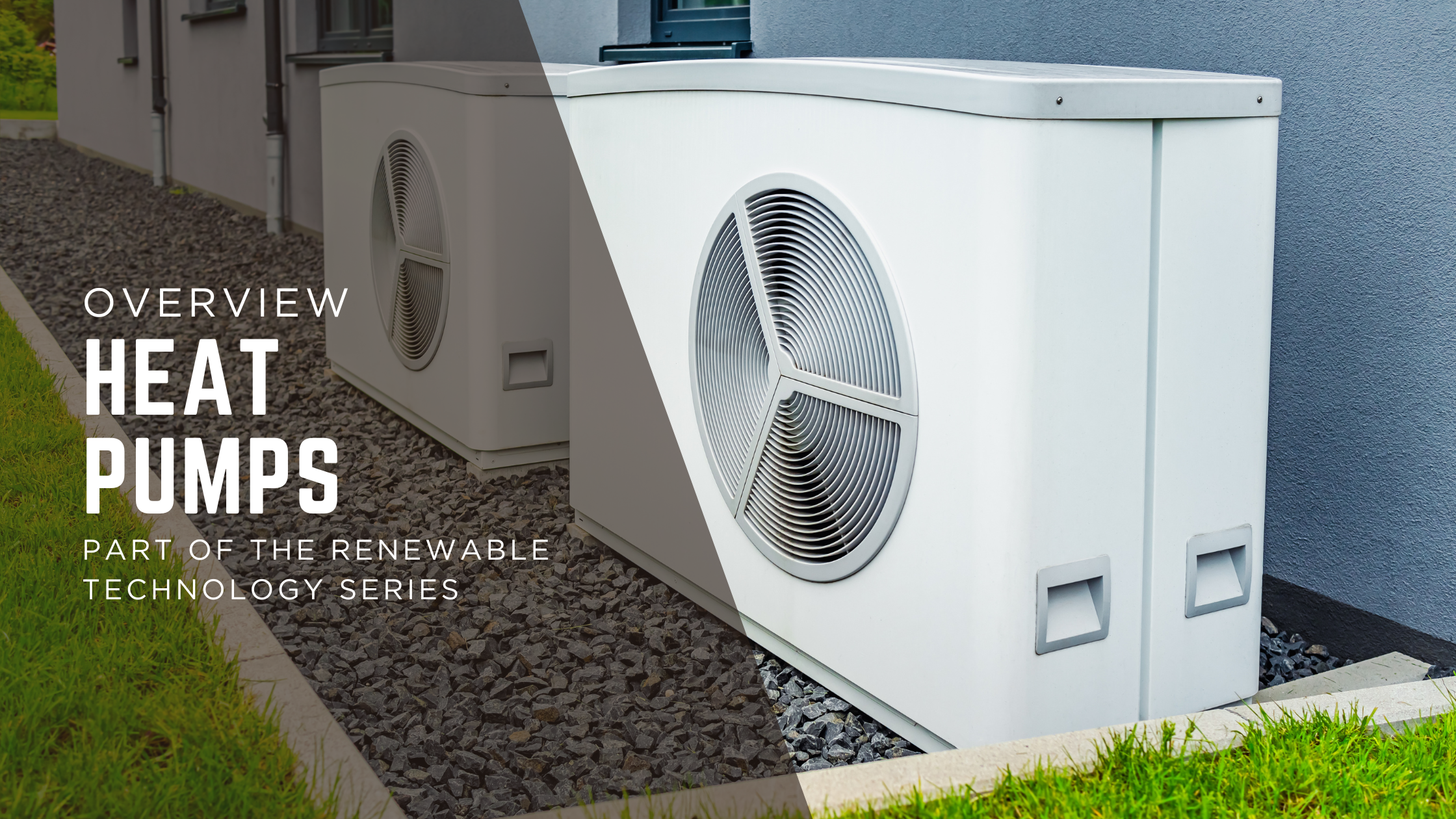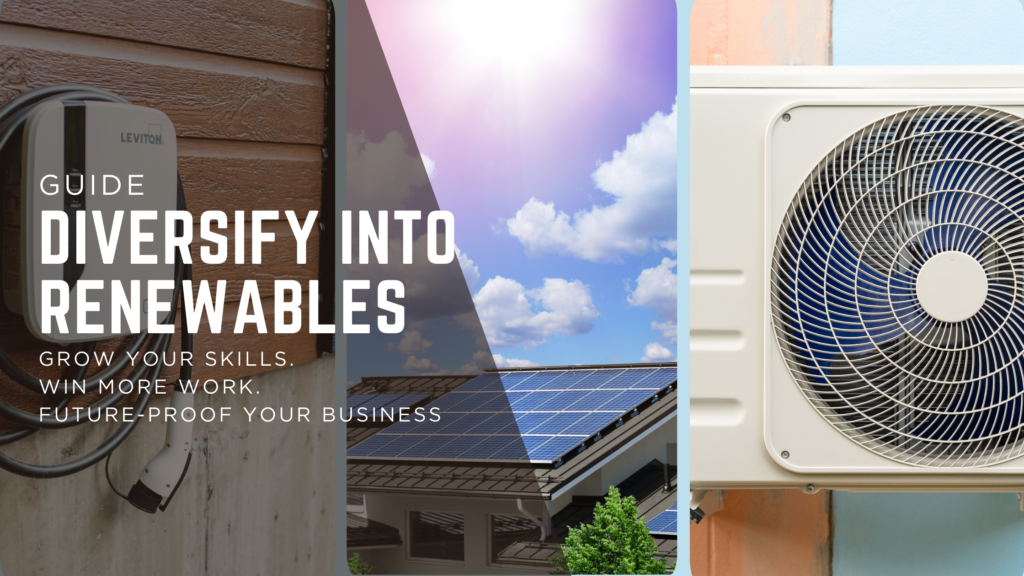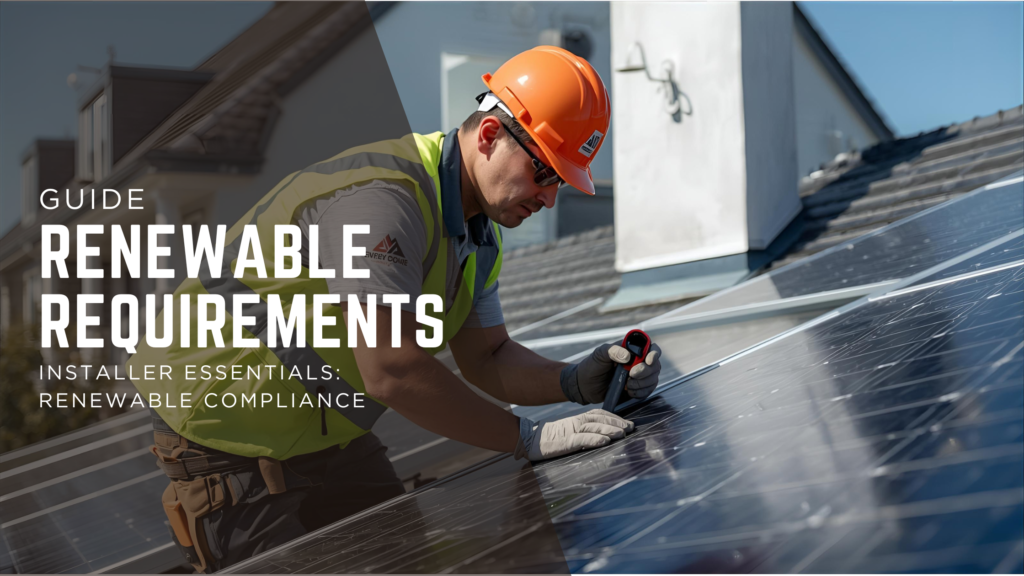Heating our homes is one of the biggest contributors to household bills — and to carbon emissions. That’s why heat pumps are attracting so much attention.
Instead of burning fuel, a heat pump moves heat that already exists in the air or the ground into your home. They’re efficient, low-carbon, and increasingly supported by government grants. In fact, you could get up to £7,500 off the cost of a new system through the Boiler Upgrade Scheme.
So, are they right for you? Let’s take a closer look.
How Heat Pumps Work
The easiest way to picture a heat pump is to think about your fridge. A fridge takes heat from inside and dumps it into your kitchen. A heat pump does the same thing in reverse — it collects heat from the air or the ground outside and transfers it into your home.
But here’s where it gets clever:
It moves heat, it doesn’t create it. Traditional boilers burn gas or oil to generate heat, which means carbon emissions. A heat pump simply shifts heat that already exists in the environment, so there’s no combustion involved.
Efficiency is the game-changer. For every unit of electricity you put in to run a heat pump, you can get 3 to 4 units of heat back. That’s like buying one loaf of bread and getting three or four in return. This efficiency rating is called the Coefficient of Performance (COP).
Yes, they work in the cold. Modern systems are designed for northern European climates and can still extract usable heat even when it’s -5°C or -10°C outside. They don’t stop just because the temperature drops.
They deliver gentle, steady warmth. Unlike gas boilers that switch on and off at high temperatures, heat pumps work best at a lower, steady temperature. That means radiators that feel warm rather than scalding hot, and a home that stays at a consistent, comfortable level.
Hot water, too. Most systems heat both your home and your hot water supply (stored in a cylinder).
What does all this mean for you as a homeowner? It means a system that can heat your home efficiently all year round, with less impact on the environment — and lower bills if you’re replacing oil, LPG, or direct electric heating.
Curious about costs and funding? See our guide: Do I Qualify for Renewable Grants?
Types of Heat Pumps
There’s no one-size-fits-all heat pump. The right system for you depends on your home, budget, and how you use energy. Here are the main types:
Air Source Heat Pumps (ASHPs)
How they work: Take heat from the outside air and transfer it into your home, even when it’s freezing.
Best for: Most UK homes. They’re the most common and easiest to install.
Cost: Around £7,000–£11,000 installed.
Pros: Lower upfront cost, widely available, supported by the £7,500 Boiler Upgrade Scheme.
Cons: Efficiency can dip in very cold snaps (though they still work). You’ll need space outside for the unit.
Ground Source Heat Pumps (GSHPs)
How they work: Extract heat from the ground via buried pipes or vertical boreholes. The ground stays at a steady temperature year-round, so they’re very efficient.
Best for: Homes with large gardens (for horizontal pipes) or budget for drilling boreholes.
Cost: Around £12,000–£20,000+.
Pros: Very efficient, stable performance, long lifespan for ground loops (up to 40 years).
Cons: High upfront cost. Installation is disruptive — you’ll need digging or drilling.
Air-to-Air Heat Pumps
How they work: Instead of heating water, they heat air and blow it into your rooms. Think of them as a highly efficient version of an air conditioning unit that can also heat.
Best for: Smaller, well-insulated homes or individual rooms.
Cost: Typically cheaper than ASHPs or GSHPs.
Pros: Compact, quick to install, can provide heating and cooling.
Cons: Doesn’t provide hot water. Less suited for whole-house heating.
Installation Requirements & Suitability
Heat pumps work differently to gas boilers, so there are a few things you’ll need to have or be prepared for:
Hot water cylinder
Most systems need a cylinder to store hot water. If you’re used to a combi boiler, that’s a change to plan for.Radiator or heating upgrades
Heat pumps work at lower flow temperatures than boilers. That often means fitting larger radiators, or in some cases underfloor heating, to get the best results.Space
You’ll need outdoor space for the main unit (air source) or enough land for pipework (ground source). Indoors, you’ll also need a small amount of space for equipment like the hot water cylinder.Planning permission
In most cases, you won’t need it. But if you live in a listed building or conservation area, you should check first
Costs, Savings & Grants
Upfront cost
Air source heat pumps usually cost £7,000–£11,000.
Ground source systems can range from £12,000–£20,000+, depending on the property.
Grants
The Boiler Upgrade Scheme offers up to £7,500 towards an air source or ground source heat pump in England and Wales. That can cut the cost almost in half for many homes.
Running costs
Your savings depend on what you’re replacing:
If you currently use oil, Liquid Petroleum Gas (LPG), or electric heating, switching to a heat pump can save you hundreds each year.
If you’re on mains gas, savings are smaller — but you’ll still cut emissions and protect yourself from gas price rises.
Payback
It’s not one-size-fits-all. For some households, the grant plus lower running costs mean a payback of under 10 years. For others, it’s a longer-term investment.
Maintenance, Noise & Lifespan
Heat pumps are designed to be reliable, but like any heating system, they need care.
Maintenance: An annual service by a qualified technician will keep them running efficiently.
Lifespan: Expect 15–20 years from an air source system. Ground loops can last even longer — 40 years or more.
Noise: Modern units are much quieter than older models. Typically, they’re about as noisy as a fridge or gas boiler — and often not noticeable once installed outside.
Pros and Cons of Heat Pumps
FAQs on Heat Pumps
Do heat pumps work in winter?
Yes. Modern systems are designed for cold climates and can extract heat even when it’s below freezing.
Do I need bigger radiators?
In many homes, yes. Heat pumps work at lower temperatures, so larger radiators or underfloor heating help spread warmth effectively.
Can a heat pump provide all my heating and hot water?
Yes, if the system is designed and installed properly. Most homes will also need a hot water cylinder.
How noisy are they?
Modern air source heat pumps are similar in volume to a fridge or gas boiler. Noise levels are strictly regulated.
How much space do I need?
Air source: room for a unit about the size of an air conditioning box outside.
Ground source: either a large garden for horizontal loops or space for a borehole to be drilled.
Do heat pumps need electricity?
Yes. Heat pumps run on electricity. The good news? They use it very efficiently: 1 unit of electricity can deliver 3–4 units of heat.
Can electricity come from solar panels?
Absolutely. Many homeowners pair heat pumps with solar PV and/or battery storage. Your panels can provide part of the electricity needed, reducing bills further and making your system greener.
How much do they cost to run?
Running costs depend on what fuel you’re replacing, your electricity tariff, and how well your home is insulated. They’re often cheaper than oil, LPG, or direct electric heating.
Do I need planning permission?
Not usually. Exceptions include listed buildings, conservation areas, or if the unit would be very close to a neighbour’s boundary.
What’s the lifespan of a heat pump?
Typically 15–20 years for the main unit. Ground loops can last 40 years or more.
Can I get a grant for a heat pump?
Yes. In England and Wales, the Boiler Upgrade Scheme offers up to £7,500. Scotland and Northern Ireland run their own schemes.
Disclaimer:
This content is provided for general information purposes only and does not constitute legal, financial, or technical advice. While we aim to keep the information accurate and up to date, schemes, funding availability, and installer requirements may change. Readers should always verify details with the official scheme providers or relevant authorities before making decisions.


